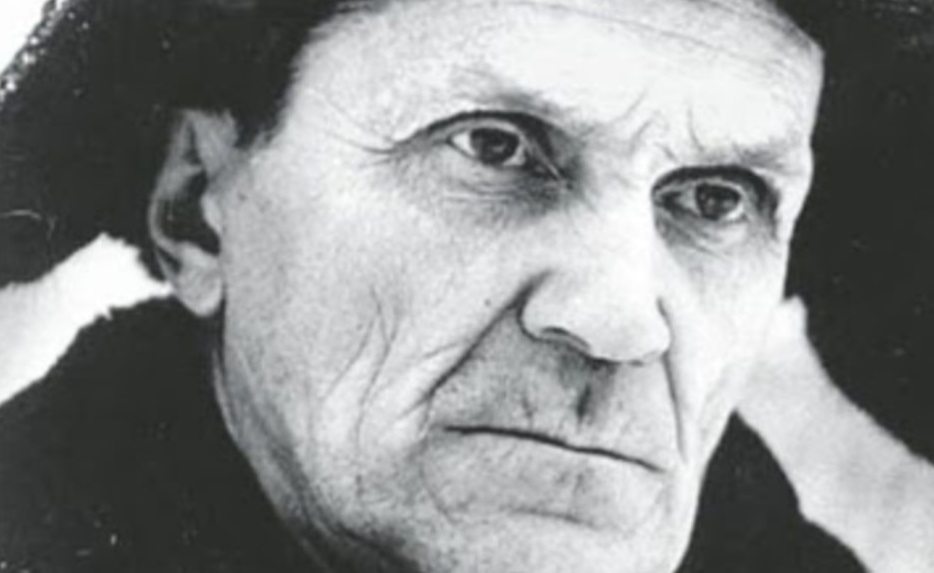Erasing the memory of the Siberian lagers
The local authorities have decided to close the museum room where the famous writer Varlam Šalamov wrote the Tales of Kolyma, the most intense narration of the life of the deportees in Siberia at the time of Stalin. The decision followed a complaint about the precarious condition of the building, a symbol of a memory that is increasingly troublesome in Russia today.
Moscow (AsiaNews) - The authorities of Kolyma, the region of the Russian Far East around the river of the same name between Yakutsk and Magadan, have decided to close the museum-room where the famous writer Varlam Shalamov wrote the Kolyma Tales, the most intense narrative of life in the Siberian concentration camps in Stalin's time together with books by Aleksandr Solzhenitsyn and Vasilij Grossman. The memorial site was arranged in the village of Debin, open since 2005, on the centenary of the writer's birth.
Shalamov had been admitted to the local clinic, now exhausted from hunger and the very heavy forced labor of the concentration camp, located in one of the coldest areas in all of Russia, where the temperature can drop to 60 degrees below zero.
Dissident memory activists had organized the mini-museum inside the clinic, which has now been officially closed by the Magadan region's health ministry, although the decision clearly came "from higher up", as local officials confide.
The decision to close was prompted by the reportage of a local journalist, who visited the Šalamov Museum a month ago, reporting on the precarious conditions of the clinic building, to invite the authorities to intervene.
As the historian Ivan Džukha, who has dealt with the issue in recent years, explains, “as always they wanted to do better, and it went as usual… The tuberculosis clinic was in fact in poor condition and its closure was scheduled for 2027, due to a renovation, because no one had the courage to openly propose its demolition".
The building was one of the most impressive in all of Kolyma, and its memorial importance made it a "sacred place" of a memory that today becomes increasingly annoying for a regime that closely resembles Stalin's.
Šalamov survived almost by a miracle after hospitalization, when he arrived as a dokhodjaga ("lowest being") and now almost "arrived at socialism", the expressions of the concentration camps to define a person on the verge of death. Instead he recovered, and in the hospital room he began to write poems and stories, despite still being a prisoner, which spread through the samizdat channels throughout the country, reaching as far as the West.
The outcry in the press over the conditions of the memorial was considered an obstacle to the increasingly bombastic rhetoric that in Russia accompanies the start of the electoral campaign for the re-election of the "supreme leader", and local officials were frightened by the possible consequences.
The head doctor of the hospital wrote to the minister of health, who involved the governor until reaching the Kremlin, from which the closure order came.
Džukha himself (son of citizens originally from Mariupol of Greek ethnicity, and therefore sent to the concentration camp) a year ago had gathered a group of volunteers to begin the restoration work on the museum-room, in agreement with the management of the clinic, reorganizing also the exhibition of various objects from the daily life of the zek, the inmates of the concentration camps.
Along with the tools of forced labor it was possible to visit Shalamov's personal library, donated by the family of a close friend of the writer, Irina Sirotinskaja, and also the originals of his diaries, written on makeshift paper. The museum supported itself thanks to donations from activists and visitors.
The building, although in defective conditions, had been built in the 1930s as Stalin's pride of the "Kolyma of the future", with concrete corridors and high-power heating batteries, handcrafted furniture, and doctors of all specializations worked there , taken from among the same inmates of the concentration camps, with two surgical departments and two for the treatment of tuberculosis, and also an entire female section.
Shalamov had ended up there after his second arrest in 1937, receiving another 5-year sentence for “Trotskyist counterrevolutionary activity,” an anti-Stalinist heresy that believed in universal revolution, instead of venerating the Georgian dictator's exaltation of superior Russia. Almost a century has passed, and the lack of faith in Russia continues to be persecuted and oppressed.
07/02/2019 17:28
11/08/2017 20:05







.png)










